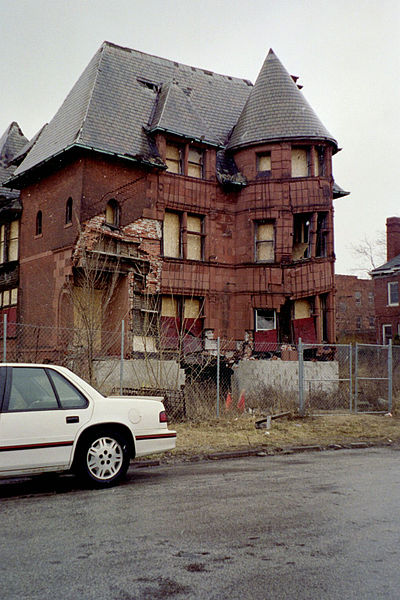On Tuesday, the results of a federal report on Detroit's vacancy crisis made jaws drop: The pricetag for tearing down and cleaning up the city's abandoned properties would be $1.85 billion, the report found.

Where the money will come from is a wide open question at this point. So is the more basic issue of whether tearing down dilapidated houses and factories is the best way to spend close to $2 billion to help Detroit.
But to put the figure in context and add a touch of irony, consider this: The Detroit region is moving forward with major highway expansion projects that will cost more than twice as much over the next decade as the proposal to address the vacancy problem.
Last year the Detroit regional planning agency approved close to $4 billion in spending to rebuild and expand I-94 and I-75 in the city and its nearby suburbs. These projects are moving forward despite widespread protests that they will further disinvestment in the urban core -- a major factor in the city's vacancy crisis.
This is a classic example of how the state, the regional planning agency, and the federal government have failed Detroit. It's not that there's no money flowing into the region -- the money just can't be used for what the city really needs. Instead, the big transportation bureaucracies just keep pumping money into the same kind of thing they've been doing for 50 years.
You'd think 40,000 vacant buildings would be a wakeup call that business as usual has failed. What will it take for the Detroit region to reexamine the planning policies that helped land it in this position?





